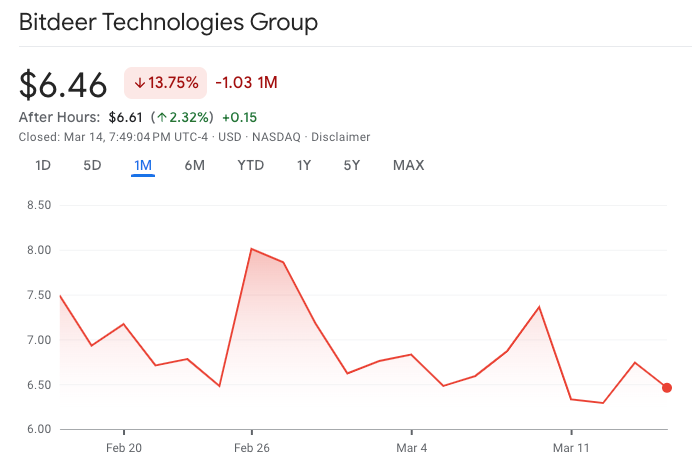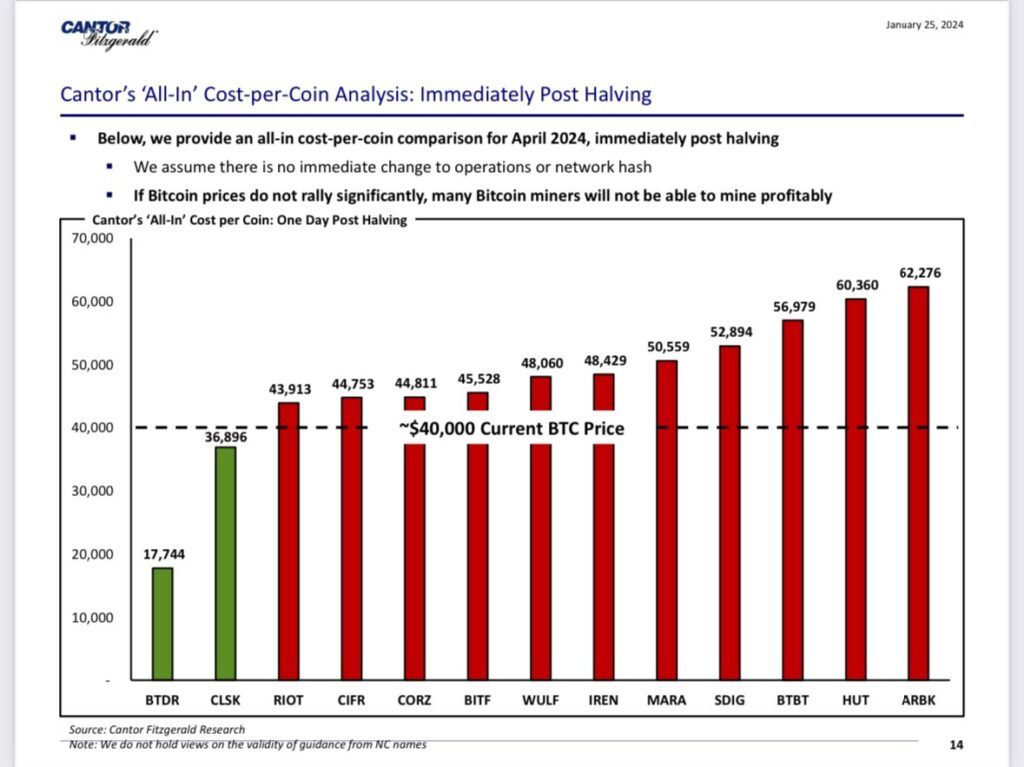Bitdeer is a Bitcoin mining firm spun off from Chinese parent company Bitmain, one of the world’s largest Bitcoin mining equipment manufacturers.
Palmer justified his buy rating by saying the Singapore-based company had differentiated itself with an average power cost of approximately $0.04 per kilowatt hour — one of the lowest costs among publicly traded mining firms.
The rating was also supported by the company’s plans for expansion, high levels of self-mining, and a recent push into the field of artificial intelligence — with its price target for 2025 doubling from its current price.
“BTDR shares are attractive, in our view, given the wide gap between their discount valuation and the company’s growth prospects,” wrote Palmer.
Bitdeer shares are currently changing hands for $6.46, down 7.6% for the week and 13.8% for the month per Google Finance data. At the time of publication, Bitdeer is the seventh largest crypto miner by market total value, with a market capitalization of $768 million.

Not everyone, however, is bullish on Bitcoin mining firms, especially with the Bitcoin halving slated to occur in late-April — an event that slashes the Bitcoin-denominated rewards paid to miners in half.
On Jan. 26, Cantor Fitzgerald released a report outlining that several Bitcoin mining firms may struggle to stay in profit depending on the price of Bitcoin after the halving.

However, according to the graph provided by the firm, at Bitcoin’s current price of $67,700, none of the firms listed in the report will be in the red.
Shares in publicly traded mining firms have tumbled in recent weeks, with the largest traded Bitcoin miner Marathon Digital, and rival minor Riot Blockchain, falling 33% and 34%, respectively in the last month.
Blockware Solutions’ head analyst Mitchell Askew told on March 1 that the “most logical” explanation for tumbling miner share prices came from investors growing wary of buying shares in miners before the Bitcoin halving — an event that slashes the rewards paid to miners in half.
On March 4, Bitdeer announced the successful initial testing of SEAL01, a new 4-nanometer Bitcoin mining chip with a power efficiency of 18.1 J/TH, which falls below the average power efficiency of around 29 J/TH.
